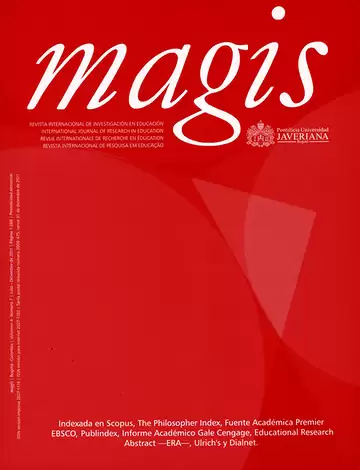Resumen
El texto presenta los planteamientos expuestos en el evento Pensar en Público: homenaje al pensamiento del maestro Guillermo Hoyos-Vásquez. Se pregunta por la educación para la ciudadanía en y desde los movimientos sociales. Lo que supone asumir los movimientos sociales como espacios educativos con capacidad de construcción de nuevas realidades sociales y de subjetividades emergentes. Abordar qué significa que los movimientos sociales se conviertan en un sujeto educativo que contribuyen a la construcción de ciudadanía, conlleva reconocer algunas dimensiones constitutivas del potencial formativo de la acción colectiva: a) la capacidad de reflexividad para proponer y crear criterios morales para juzgar y valorar situaciones de dominación y exclusión arraigadas y naturalizadas por los sistemas sociales de poder, como hechos injustos que cuestionan lo políticamente correcto; b) establecer la facultad que tienen las colectividades sociales para narrar y comunicar experiencias significativas para la construcción de la memoria colectiva; c) indagar la posibilidad de configurar identidades politizadas; d) destacar los repertorios emocionales que movilizan por medio de sus expresiones de lucha y de resistencia, y e) asumir los antagonismos y los disensos como dimensiones políticas de la acción colectiva.
La revista magis, Revista Internacional de Investigación en Educación by Pontificia Universidad Javeriana se encuentra registrada bajo la licencia Creative Commons Reconocimiento 4.0 Internacional. Por lo tanto, esta obra se puede reproducir, distribuir y comunicar públicamente en formato digital, siempre que se reconozca el nombre de los autores y a la Pontificia Universidad Javeriana. Se permite citar, adaptar, transformar, autoarchivar, republicar y crear a partir del material, para cualquier finalidad (incluso comercial), siempre que se reconozca adecuadamente la autoría, se proporcione un enlace a la obra original y se indique si se han realizado cambios. La Pontificia Universidad Javeriana no retiene los derechos sobre las obras publicadas y los contenidos son responsabilidad exclusiva de los autores, quienes conservan sus derechos morales, intelectuales, de privacidad y publicidad.
El aval sobre la intervención de la obra (revisión, corrección de estilo, traducción, diagramación) y su posterior divulgación se otorga mediante una licencia de uso y no a través de una cesión de derechos, lo que representa que la revista y la Pontificia Universidad Javeriana se eximen de cualquier responsabilidad que se pueda derivar de una mala práctica ética por parte de los autores. En consecuencia de la protección brindada por la licencia de uso, la revista no se encuentra en la obligación de publicar retractaciones o modificar la información ya publicada, a no ser que la errata surja del proceso de gestión editorial. La publicación de contenidos en esta revista no representa regalías para los contribuyentes.


